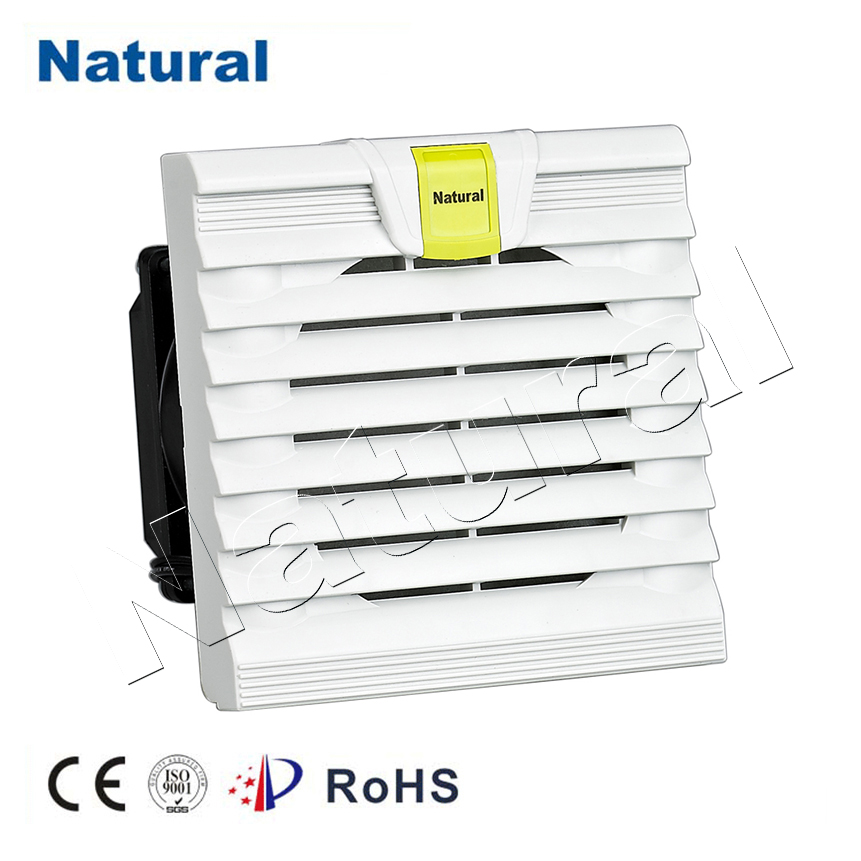In the fast-paced world of electronics, maintaining the optimal operating conditions for sensitive components is paramount. One often-overlooked yet critical aspect of this maintenance is the use of cabinet fan filters. These unassuming devices play a crucial role in keeping electronic cabinets clean and cool, thereby extending the lifespan and reliability of electronic equipment.

Understanding the Need for Cabinet Fan Filters Electronics generate heat during operation, and excessive heat can lead to component failure and reduced performance. To combat this, many electronic cabinets are equipped with cooling fans that circulate air to dissipate heat. However, these fans also draw in dust, dirt, and other airborne contaminants, which can accumulate over time and hinder cooling efficiency. The Role of Cabinet Fan Filters Cabinet fan filters act as the first line of defense against these contaminants. They are designed to capture and trap particles as small as a few micrometers in size, preventing them from entering the cabinet and clogging delicate electronic components. These filters are typically made of materials like foam, mesh, or polyester and can be easily replaced when they become dirty. Benefits of Using Cabinet Fan Filters Improved Equipment Lifespan:By preventing dust and dirt from infiltrating the cabinet, fan filters help extend the lifespan of electronic equipment. Dust accumulation can lead to overheating and reduced performance, while also increasing the risk of component failure. Enhanced Reliability:Electronic equipment housed in cabinets with fan filters is more reliable. Clean, cool air ensures consistent performance and reduces the chances of unexpected downtime. Reduced Maintenance:Regularly replacing fan filters is a simple and cost-effective maintenance task. It takes just a few minutes to replace a filter, but the benefits in terms of equipment reliability and longevity are significant. Improved Air Quality:In environments where air quality is a concern, such as industrial settings, cabinet fan filters help maintain a cleaner and healthier working environment by trapping harmful particles. Energy Efficiency:Cabinets with fan filters often require less energy to maintain optimal operating temperatures. By keeping components cool without excessive fan usage, energy costs can be reduced. Choosing the Right Cabinet Fan Filter Selecting the appropriate cabinet fan filter is crucial to ensure effective performance. Factors to consider include: Filter Material:Choose a material that suits your environment. For dusty or industrial settings, a denser filter with a higher filtration efficiency may be necessary. Size:Ensure that the filter size matches the fan opening in your cabinet to prevent bypass airflow. Maintenance:Consider the ease of replacing filters. Some designs allow for tool-less replacement, which can save time and effort. Filtration Efficiency:Higher filtration efficiency filters are better at capturing smaller particles but may require more frequent replacement. Conclusion In the world of electronics, reliability and longevity are of utmost importance. Cabinet fan filters may seem like small and inconspicuous components, but their role in protecting sensitive electronics from dust and heat cannot be overstated. By investing in quality fan filters and incorporating them into your equipment maintenance routine, you can ensure that your electronic cabinets remain clean, cool, and reliable for years to come. Don’t underestimate the impact of these unassuming devices; they are the unsung heroes of electronics cooling.